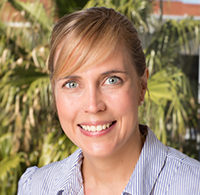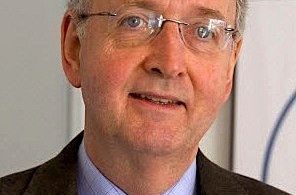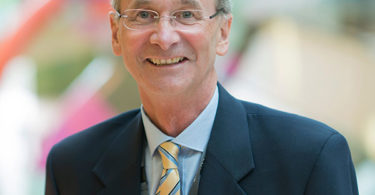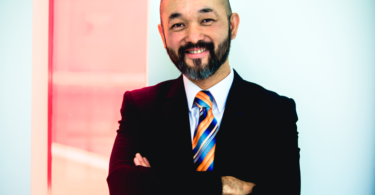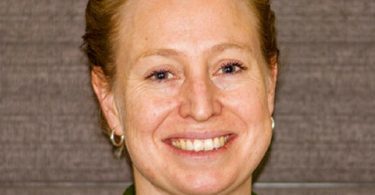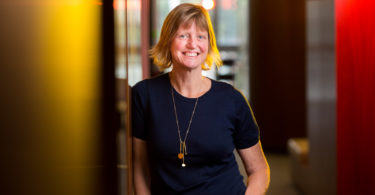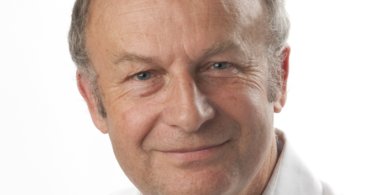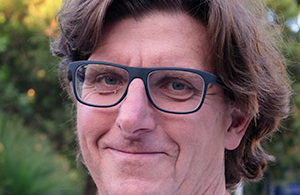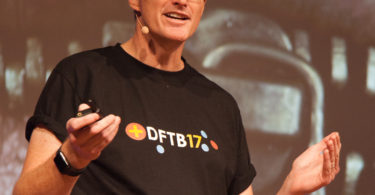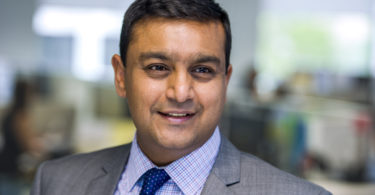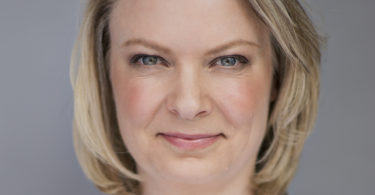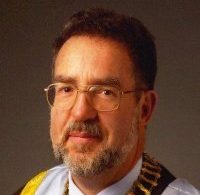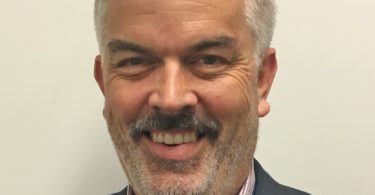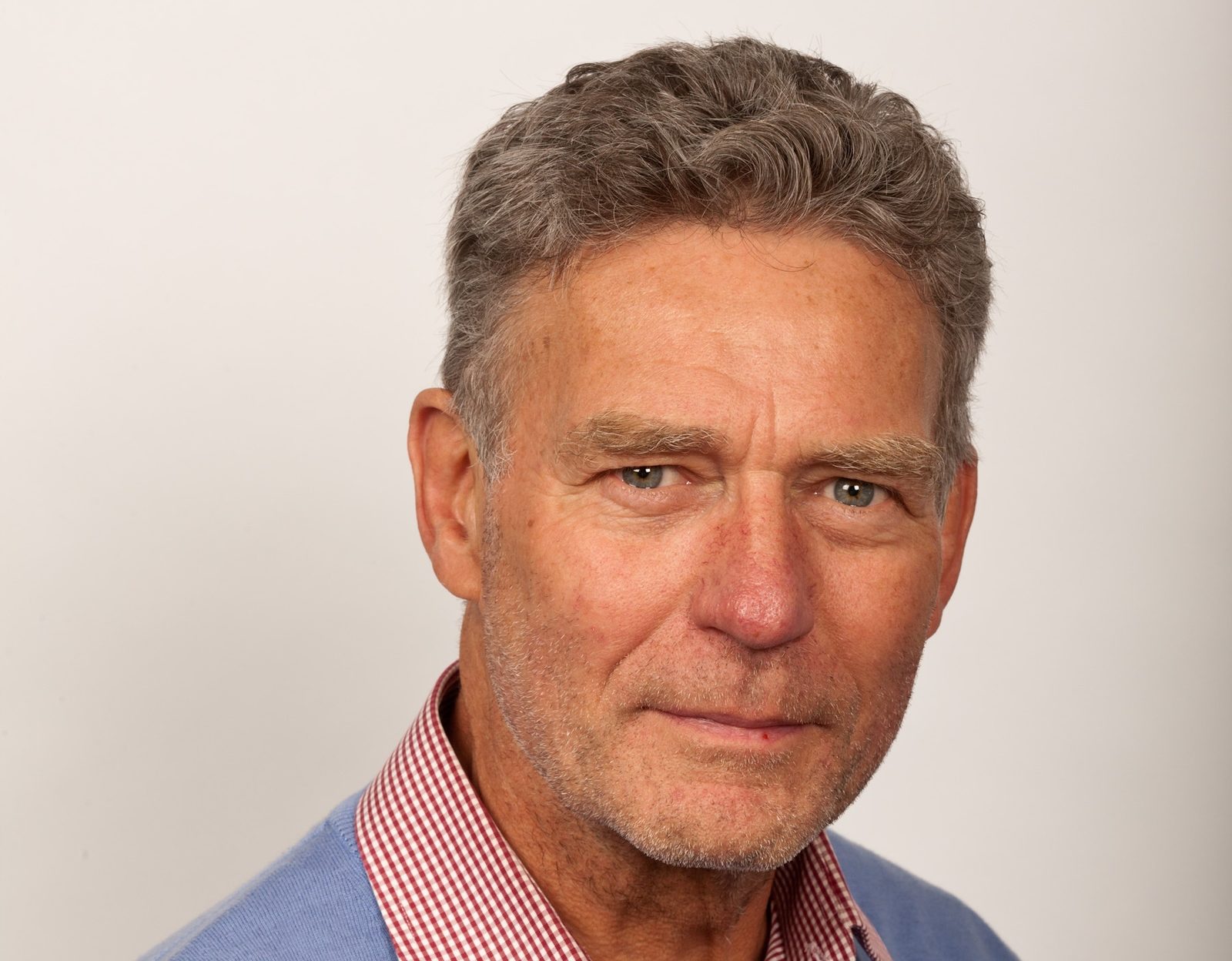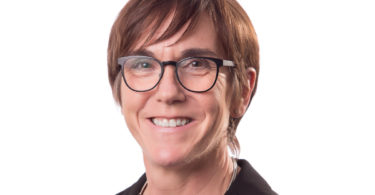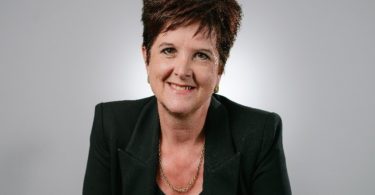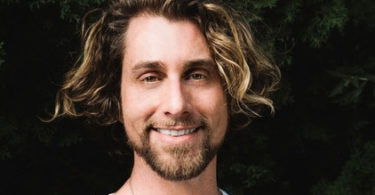Thank you to our wonderful sponsor KPMG and our excellent panellists John McDonough and Marie Bismark. What an amazing and enlightening discussion, moderated by Euan Wallace, on “The Politics of Healthcare”. Here’s the wrap up: Politics and Healthcare The two are inextricably linked and inseparable. In many countries, universal healthcare coverage is an accepted right; in others, it’s still contested terrain today. It’s a very complex equation. The health care system we have today is influenced by political history: in Australia, this is the funding divide between states / territories and the Federal government; in the USA, “socialist thinking” is not in the psyche of many. The current political turmoil globally reminds us of the fragility of the system and the effect this can have on public sector services such as health and education. Note Who’s Communicating the Message Professional organisations, who are seeking promotion of their specific view, are very wily, well-funded and have enormous depth: they’re good at defending their turf. They are extremely effective in knowing what processes to play and how best to play them. For example, don’t be fooled by opinions / viewpoints / critiques made by “astroturf consumers” who look like grassroots consumers who are actually more professional than you think! So, make sure you look well into the roots and background of the advocates to really understand the essence of the message and underlying motivation. Effecting Change and Influencing Healthcare Provisions and Healthcare Itself The best influence is often from the ground-up. With a focused message, we need the power of not only the patient voice but also the community voice. This was clearly demonstrated by the Obamacare experience when the threat of repeal was on the horizon. Sometimes, even a single piece of research can produce impactful change, especially when the timing is right. For example, the regulation of surgeons at 70 or above was instituted by the Royal College of Surgeons in Australia – this was done prior to the full publication of the underlying research. We are reminded we all have a role to always treat patients with care and compassion. Make the Message Personal Politics is personal; so, with the right content, make the message and interaction compelling and commensurate. Understand your politician’s motivation and, if it aligns, the opportunity to make an impact is there. As an individual, it’s a matter of having your “compass setting right” and seizing the opportunity when it’s available. Don’t Lose Faith The Millennials are big influencers and are being educated, quickly. The results of the recent Federal elections, both here and in the US, were a bit of a surprise. It’s been an awakening. The Millennials are a very compelling consumer segment and can force change by politicising their purchases. The final word from our panellists: Small groups of citizens can make a difference; andBe optimistic that, in the long-term, we will change things. Additional links if you’re seeking a better understanding to what’s happening in the US and an explanation about how the US government is set-up and how it functions (James Madison’s Federalist Papers #10 and #51) plus links to Marie Bismark’s research on “identification of practitioners at high risk of complaints” and the NY Times article on surgeon retirement and mandatory screening: Federalist Paper #10: Paper #51: Bismark’s research: Times article:
Australian Health Network
The Politics of Healthcare
13th June, 2019: 5:45 pm – 8:15 pm
Healthcare delivery and commissioning are inextricably linked to the thinking and beliefs of our politicians of the day. Join us for a conversation (and not just the acronyms) between Professor John McDonough and Assoc. Prof Marie Bismark as they explore the role of government, both good and bad, and what we can learn from our health and care systems.
Marie Bismark – Senior Fellow, University of Melbourne
Dr. Marie Bismark is a public health physician and health lawyer, who leads the Law and Public Health Group at the University of Melbourne. Her research focuses on the role of patient voice in improving the quality and safety of healthcare. In 2014, Marie was awarded the Fellows Career Development Fellowship from the Royal Australasian College of Physicians to study the impact of new laws requiring mandatory notification of concerns about the health, performance or conduct of health practitioners in Australia. Marie has previously worked as a doctor in a number of New Zealand hospitals, served as a legal adviser to the New Zealand Health and Disability Commissioner, and been a solicitor with a leading New Zealand law firm. In 2004-2005, she completed a Harkness Fellowship in Health Care Policy at Harvard University, with Professors David Studdert and Troy Brennan, researching alternatives to medical malpractice litigation. In addition to her academic role, Marie serves as a non-executive director on the boards of a number of health sector companies, including GMHBA Health Insurance, Summerset retirement villages, and the Young and Well Cooperative Research Centre. She has published widely on no-fault compensation, patient safety and healthcare complaints resolution. Marie and her husband Matthew have three teenage children.
John McDonough – Professor of Public Health Practice, Harvard T.H. Chan School of Public Health
John E. McDonough, DrPH, MPA is Professor of Public Health Practice in the Department of Health Policy & Management at the Harvard T.H. Chan School of Public Health and Director of the Center for Executive and Continuing Professional Education. In 2010, he was the Joan H. Tisch Distinguished Fellow in Public Health at Hunter College in New York City. Between 2008 and 2010, he served as a Senior Advisor on National Health Reform to the U.S. Senate Committee on Health, Education, Labor and Pensions where he worked on the development and passage of the Affordable Care Act. Between 2003 and 2008, he served as Executive Director of Health Care for All, Massachusetts’ leading consumer health advocacy organization, where he played a key role in passage and implementation of the 2006 Massachusetts health reform law. Between 1998 and 2003, he was an Associate Professor at the Heller School at Brandeis University and a Senior Associate at the Schneider Institute for Health Policy. From 1985 to 1997, he served as a member of the Massachusetts House of Representatives where he co-chaired the Joint Committee on Health Care. His articles have appeared in Health Affairs, the New England Journal of Medicine and other journals. He has written three books, Inside National Health Reform, published in September 2011 by the University of California Press and the Milbank Fund, Experiencing Politics: A Legislator’s Stories of Government and Health Care by the University of California Press and the Milbank Fund in 2000, and Interests, Ideas, and Deregulation: The Fate of Hospital Rate Setting by the University of Michigan Press in 1998. He received a doctorate in public health in 1996 from the School of Public Health at the University of Michigan and a master’s in public administration from the John F. Kennedy School of Government at Harvard in 1990. He blogs regularly at Health Stew, available at:
Artificial Intelligence: Digital Demon or Darling?
18th March, 2019: 6:00 pm – 8:30 pm
With our incredible sponsors, the University of Melbourne, please come and join us for an intelligent discussion and debate on whether it's right to pursue artificial intelligence in medicine when the human relationship is so critically important.
Dying Well: Let’s Talk wrap up
It was a packed house as KPMG hosted our AHN esteemed panel for this amazing evening and discussion. Prof. Mei Krishnasamy encouraged a robust and honest conversation between Prof. Jenny Philip, Dr. Claire Hepper and Prof. Charlie Corke with terrific engagement from the AHN members. As always, the conversation was wide-ranging and it was clear people were passionate about the topic with everyone sharing very thoughtful and personal comments (and, as it was pointed out, we’re all ultimately future consumers). Here’s the wrap up and summary of the salient points from the conversation: We need to start recognising and addressing the inherent dichotomies Culturally, it’s not the “norm” (it’s the so-called “unspeakability of death”) and we’re not prepared to speak about the final stage: we need to get better and more sophisticated at it. We often expect clinicians to have these difficult conversations but we don’t arm them accordingly and then we don’t reward them for making the tough decisions. Very few people want to live as long as possible. Often, people state they don’t wish to “suffer” with pain (and often it’s the physical pain) but this seems to be a very narrow definition of “suffering”. Suffering has a much broader definition and encompasses so much more – it’s about the long journey but not enjoying the road! At the end of all this, it’s really about “care”, not dying, and the general system is already beginning to show cracks. How do we prevent this from happening and the system completely breaking down? Build on what is strong, not what is wrong There is a tendency in medicine to focus on our failures. For many, we understand a “good death” as being what the person desired. However, someone’s death is often judged by the family, friends who were present. Engage and enable the community to lead For some, dying and death is no longer a taboo subject and yet, for others, it’s possible to have an entire conversation about death without talking about the disease process. We need to engage and enable! As health professionals, we like to see an ordered process in the care we deliver. In many instances, dying doesn’t fit this pattern; so, we assume it not happening. We need to encourage these conversations in the community. This needs to be a community initiative. People highlighted their amazement at the capacity from the local community when tragedy occurs: the sheer drive, love and support provided. Importantly, there’s so much that can be done to help and to give the carers a break. It’s the job of the community (loosely defined) to help the carer. Take every opportunity to have a conversation about death Navigation of the end-of-life is important for everyone to have considered. This includes clinicians and health workers in their own personal life. Many people simply assume their family knows what their wishes are. We need to understand this is not always the case. However, sometimes we’re not good at framing the question. One panellist talked about how they initiate the conversation by talking about “living at the end” and that helps people open up and start the discussion about their wishes. The advent of voluntary assisted dying (VAD) legislation in Victoria will act as a stimulus and catalyst for conversations about death. Regardless of the position you hold as a clinician or person in the community, it’s important to understand the system in which VAD exists so we can ensure the family and friends are cared for after a person’s death. Clinician education and training are both crucial If we expect clinicians to have these difficult conversations, we should ensure they have the correct skills and education to do this properly. Clinicians need help to become comfortable with these discussions and they need to be taught how to have the conversations. It’s confronting (and understandably unfair) for the most junior and least experienced clinicians who are often delegated the task. As a clinician, be informed, refer, manage vulnerability (patients often know it’s the end), be open and recognize it’s okay to say “I don’t know) – just don’t be negligent. Additional links: Cassel EJ (1982). The nature of suffering and the goals of medicine. N Engl J Med. Mar 18; 306(11): 639-45 Shannon’s Bridge is a not-for-profit, volunteer organisation that works at connecting patients, families and existing palliative care services for support and help with home-based care at the end of life:
John Stanway – CEO, The Royal Children’s Hospital
John Stanway was appointed to the role of Chief Executive Officer (CEO) at The Royal Children’s Hospital in April 2017. Prior to commencing in this role, John was the Chief Operating Officer at The Royal Children’s Hospital for more than ten years, overseeing clinical operations. From 2012, John also held the position of Deputy CEO. Before joining The Royal Children’s Hospital, John managed Monash Medical Centre, was Chief Executive of the Transport Accident Commission and held various senior management roles at General Motors Holden. John has a double major in Economics and a Graduate Diploma in Industrial Relations and is a Fellow of the Australian Institute of Company Directors. John was also President of the Victorian Hospitals Industrial Association and Chairman for 10 years. John is currently a Board Director of The Royal Children’s Hospital Foundation, Victorian Comprehensive Cancer Centre Ltd, Murdoch Children’s Research Institute and Children’s Healthcare Australasia.
Erwin Loh – Chief Medical Officer, St. Vincent’s Health Australia
Professor Erwin Loh is national Chief Medical Officer and Group General Manager Clinical Governance for St Vincent’s Health Australia, the nation’s largest not-for-profit health and aged care provider, with 36 facilities, including six public hospitals, nine private hospitals and 17 aged care facilities in Queensland, New South Wales and Victoria, along with three co-located research institutes – the Victor Chang Cardiac Research Institute, the Garvan Institute of Medical Research, and St Vincent’s Institute of Medical Research. He is qualified in both medicine and law, with general and specialist registration as a medical practitioner (medical administration specialty), and a barrister and solicitor of the Supreme Court of Victoria and High Court of Australia. He also has an MBA, Master of Health Service Management, and PhD in management. He is Chair of the Victorian State Committee and Board Member of the Royal Australasian College of Administrators. He is adjunct Clinical Professor at Monash University, where he leads the Clinical Leadership and Management Unit at the Monash Centre for Health Research and Implementation.
Tara Donnelly – interim Chief Digital Officer, NHS England
Tara Donnelly is the interim Chief Digital Officer at NHS England. Tara is on secondment from her role as Chief Executive of the Health Innovation Network, which exists to speed up the best in health and care across south London as its academic health science network, or AHSN. She has led the Health Innovation Network for over three years and remains accountable officer, she is also a non-executive director at the Nuffield Trust, a leading health policy think tank. Tara has an extensive background in leadership roles within the NHS and the voluntary and community sector. She has a long-term passion for improvement and the potential of digital in healthcare and has spent the past 18 years at board level including at University College London Hospitals NHS Foundation Trust, as a non-executive director at Macmillan Cancer Support, as Chief Executive at the West Middlesex University Hospital and as Deputy Chief Executive and Director of Operations at the Whittington Hospital. She has worked in the NHS for 30 years with her first role being as a Ward Housekeeper when she was 18. As Chief Digital Officer at NHS England, Tara leads the strategy for citizen facing digital services to ensure people are empowered to manage their health care using digital services which meet their needs, target prevention and offer a personalised experience. She is SRO for the Empower the Person pillar, part the NHS’ Digital Transformation Portfolio. This is one of the most ambitious digital healthcare transformation portfolios in the world and its flagship programmes include the NHS website (nhs.uk), the NHS App, NHS login (verification of citizen’s identity), NHS Apps Library, Personal Health Records and Digital Standards, Digital Child Health, Digital Maternity, Widening Digital Participation, GP online services, and ensuring access to WiFi across the NHS estate.
Claire Hepper – GP & Co-founder “Shannon’s Bridge”
Dr. Claire Hepper is a GP working and living in Creswick, Victoria, where she was born and raised. Her father, Brian, was a solo GP, working and living in Creswick for the past 43 years, and the inspiration for the “cradle-to-grave and beyond” continuity of community compassionate approach that Claire aspires to deliver. Her passion is assisting patients with understanding their options for end-of-life care and promoting the patient as being ‘the captain of their own ship’. Claire and Dr. Allison O’Neill worked with Jeremy and Belinda McKnight to found “Shannon’s Bridge” in 2016, a charity named in honour of Jeremy and Belinda’s 19 year old daughter Shannon who died at home in regional Victoria in May 2016. Shannon’s Bridge is a not-for-profit volunteer-run organisation which helps connect patients and families with services and supports at end of life. Where there is a geographical or temporal gap in those services, Shannon’s Bridge upskills community members to support the family and reduce unplanned readmissions to hospital. In 2018, Shannon’s Bridge received its funding from Victorian Government DHHS, under the Ancillary Palliative Care Services Grant program, enabling them to work in more areas across Victoria. Shannon’s Bridge is now also working in collaboration with the federal caring@home project to help health services teach carers how to administer subcutaneous medications in terminal care. By following the Compassionate Community approach, Dr. Claire helps communities negotiate a crisis and then advocating for structures to be put in place to avoid a future crisis. Shannon’s Bridge has been working throughout Australia to support the model of ‘bridging the gap’ between formal and informal health services. She is also on the Board of Palliative Care Victoria and part of the Clinical Advisory Committee for Palliative Care Australia. She has a special interest in palliative care, advanced care planning, aged care, beer and the Celtic Football Club.
Jennifer Philip – Professor of Palliative Medicine, Dep’t of Medicine, University of Melbourne
Professor Jennifer Philip is the appointed Chair of Palliative Medicine, University of Melbourne, St. Vincent’s Hospital and the Victorian Comprehensive Cancer Centre. Jenny is a palliative care clinician, researcher and teacher whose particular areas of interest include improving the ways supportive and palliative care are delivered. She has extensive international credentials in academic and clinical research in palliative care. As Chair of Palliative Medicine, Professor Philip works to improve patient access to clinical research studies, build research capability and ensure all care provided to people with advanced disease is informed by evidence and delivered by people who are well-trained, supported, compassionate and passionate about what they do. She also heads the VCCC Palliative Medicine Research Group.
Dying Well: Let’s Talk
19th February, 2019: 5:45 pm – 8:15 pm
With the incredible support of KPMG, please join us for an extraordinary conversation on "Dying Well" and what that exactly means.
Charlie Corke – Deputy Chair of the Voluntary Assisted Dying Review Board
Charlie is one of Australia’s leading Intensive Care Specialists and is immediate past President of the College of Intensive Care of Australia and New Zealand. Charlie undertook medical training at St Bartholomew’s hospital in London. He completed training as a physician and then trained as an anaesthesist. Finally, he completed a third specialty program and commenced a career in intensive care. After working in Hong Kong, Charlie came to Australia, initially working as Director of Intensive Care at the Repatriation Hospital in Melbourne. In 1991, he became Director of Intensive Care in Geelong. In 2008, he stepped down as Director to concentrate more on his diverse medical interests. Charlie is regional clinical lead for the Advance Care Planning program and is the originator of the MyValues approach to advance care planning (www.myvalues.org.au). He is immediate past President of the Collehe of Intensive Care Medicine of Australia and New Zealand – and is Deputy Chair of the Voluntary Assisted Dying Review Board. He lectures widely on medical communication and end-of-life decision-making. Charlie was featured on the ABC in the film ‘In the End’ and is a regular contributor to radio. He is author of ‘Letting Go’ published by Scribe and is a strong advocate of patient-centred care.
Healthy Professionals, Better Outcomes wrap up
We know one in four people will commit, attempt or contemplate suicide: we also know one in 50 healthcare professionals will actually attempt suicide each year. Our panel explored this somber fact on a remarkable evening sponsored by Slater and Gordon.
Tackling our Thorniest Problems with a Nudge wrap up
A fascinating conversation, courtesy of our wonderful sponsor University of Melbourne, unfolded as we delved into behavioural insights, “nudging” and co-design and their bearing on health’s tricky problems. We considered what can be learnt from substantive campaigns, such as “Dumb Ways to Die” which aimed to alter risk taking behaviour in public transport, to understanding what has happened in the UK (for example the new soft drinks levy being assessed) and even here in Melbourne (for example The Alfred’s cafeteria food selection menus) to nudge public consumers toward “good” or better behaviours. Simon Bell, Professor of Marketing from the University of Melbourne, kept the panel and the audience on the move throughout the discussion. The background of the panel was extremely diverse (private industry, government sector / policy and academia), with each member being very knowledgeable in the space: Adrian Mills, Partner for Creative, Brand and Media, Deloitte Australia; Charles Abraham, Professor of Psychology Applied to Health, University of Exeter / University of Melbourne; and Sam Hannah-Rankin, Director of Public Sector Innovation, Department of Premier and Cabinet Victoria. The panelists returned again and again to four salient points: It is important to understand the behaviour you are trying to change Some health behaviours are more “sticky” than others and, consequently, are considerably harder to change. The panel reflected on the fact humans are essentially cognitive misers: we tend to follow habitual behaviours rather than forging new ways of thinking or being. This is where the small interventions, considered relevant within Nudge Theory, are key. The panel highlighted our brains have two ways or modes of thinking: System 1 Thinking, the fast part of our brain looking for short cuts, patterns and habits; and System 2 Thinking, controlling the more rational, slower part of our brain. To nudge behavior in the direction we want, we need to understand the basic neuropsychology of the behavior and the associated underlying habits so we can then tap into this when structuring the campaign or trying various ways to challenge and change the habit. The key point is that it doesn’t need to be complex. For instance, a simple sentence can deliver a change in behaviour. One such example occurred with fraudulent benefit claims where the inclusion of a sentence, stating “the department will validate each claim payment”, actually reduced fraud by 75%. Talk to the people whom you are trying to change to ensure co-creation The use of persuasion and behavioural insights have been employed by marketing experts for decades. Nudging and co-production merely amplify the advertising knowledge gained from the fifties. When we apply it to health, we are basically using it for public betterment and the good of society. However, we actually know just telling people to their change behavior is simply not working in health. So, to create the change and make an impactful difference, it’s critical to understand the individual motivators within segmented populations. The “Dumbs Ways to Die” campaign was designed to specifically influence 18-24 year olds and their risk-taking behaviours around public transportation. The key elements were: it needed to speak to the target population; it was based on a “social norming” campaign; and it tried to convey the message in a way they wanted to hear it. The general problem is that health often starts with the convenience of the institution rather than the person. This needs to be completely switched around in order to achieve behavioural change in the health industry. Utilise the EAST framework: easy, attractive, simple and timely The EAST framework was published in 2012 by the Behavioural Insights Team in the UK Cabinet Office. The framework provides a quick and easy reference guide for the application of Behavioural Insights to public policies and practices. The basic idea of the framework is to “lead to services that are easier and more pleasant for citizens to use, and more effective and cheaper too”. Government has a role in changing our behaviours Some selective population issues actually lend themselves better to explicit legislation as a way of curbing poor behaviour. For example, the smoking legislation in Australia has been much more effective in changing collective population behaviour than public betterment marketing campaigns trying to address and change individual’s behaviour. Another such example involves the UK government as it considers levying a sugar tax on the sugar content of soft drinks while the industry is already adjusting to the legislation now by reducing the sugar content of their drinks. Our fantastic evening couldn’t have happened with our terrific panellists and our wonderful sponsor University of Melbourne. Please click on the links below for the presentations referred to by the panellists (they’re on the “Event Insights” tab on the AHN website): The soft drinks levy is working before it has even been applied; Putting real people at the centre of Victorian policies and services; EAST – Four simple ways to apply behavioural insights; and Behavioural insights and healthier lives. Here are links to other resources on behavioural insights and “nudging” from the evening’s discussion: Daniel Kahneman (2011) Thinking, Fast and Slow: Ron Borland (2003) Understanding Hard to Maintain Behaviour Change: A Dual Process Approach: Miranda Ward (2015) Has Dumb Ways to Die been effective?:
Geoff Toogood – Cardiologist & Campaign Founder of “Crazy Socks 4 Docs”
Dr. Geoff Toogood is a Cardiologist & specialist consulting Aviation Cardiologist who has practiced for 20 years on the Mornington Peninsula. He has held The Director of Cardiology position at Frankston Hospital and is a Fellow of the College of Physicians, Cardiac Society and the prestigious Heart Rhythm Society. He is trained and skilled in all aspects of device therapy and follow up. Geoff established the pacing services on the Mornington Peninsula, inserting the first pacemakers (this also applies to ICD and CRT devices), and has run the pacemaker clinic since 1993. He is a Speaker / Ambassador for Beyond Blue, speaking regularly in the area of mental health, and a passionate advocate for doctors’ mental health.
Andrew Tagg – Emergency Physician & Co-founder “Don’t Forget The Bubbles”
Andrew Tagg qualified from medical school in the UK before heading over to Australia the slow way, as a cruise ship doctor. Now working in Melbourne’s west as an emergency physician, he looks after patients from their first days through to their last. Having experienced the darker side of medical culture, he became determined to help drive change. Since speaking out about his own issues with mental ill health and depression, he has been proud to be involved with Western Health’s Positive Workforce group, engaging clinicians at a local and national level. He is also co-founder of Don’t Forget The Bubbles, a paediatric educational resource, that has gained global acclaim, both through its website and its innovative and engaging conferences.
Healthy Professionals, Better Outcomes
13th November, 2018: 5:45 pm – 8:15 pm
In association with our wonderful sponsors Slater and Gordon, let’s have a candid conversation about mental well-being.
Countless reports reveal the poor state of our clinicians’ mental health and well-being.
Mary Freer – Principal, Freerthinking
In 2016, following the successful creation of Change Day Australia, Mary launched Compassion Lab, a space where leaders can practice together to uncover compassion in their organisations, their teams, and themselves. The link between innovation, creativity, workplace safety and compassion is now well researched – Mary’s work unpacks what this means for individuals and organisations. Mary is a Westpac Bicentennial Foundation Social Change Fellow, a Member of the Australian Compassion Council, a TEDx speaker and a Coach at Seth Godin’s altMBA. Mary is regularly sought after as a keynote speaker, executive coach and advisor on cultural change and compassionate leadership. You can find out more about Mary at or follow her on Twitter @FreerMary.
Adrian Mills – Partner for Creative, Brand & Media, Deloitte Australia
Adrian is a partner in the Creative, Brand & Media business at Deloitte. The business is structured to supercharge creative problem-solving capabilities across the entire firm. Underpinned by Deloitte’s deep industry and technical knowledge, the new practice is designed to deliver efficient, powerful and authentic engagements in areas that include behaviour change and human experience across multiple sectors including healthcare. Prior to Deloitte, Adrian was Managing Director of the highly decorated McCann Melbourne, recipient of multiple Agency of the Year titles at some of the world’s most prestigious creative award festivals. Adrian’s involvement in behaviour change includes the most engaged campaign of all time, “Dumb Ways to Die”, and other globally recognised work such as responsible gambling, technology in hospitals and social etiquette. All up, he has been recognised over 700 times at global and local award shows and also has judged at the Cannes Lions Festival of Creativity, New York Festivals and for the World Advertising Research Centre.
Tackling Our Thorniest Problems with a Nudge
28th August, 2018: 5:45 pm – 8:15 pm Worldwide, people are suffering from declining health status, the rise in chronic disease and increasing waistlines. Coupled with ageing populations, these present huge challenges to health systems. Exploring new ways to address and solve these problems has given rise to using insights generated by the understanding of people’s behaviour (health workers, clinicians and users of health services) and then seeking ways to change the behaviour. We now have behavioural insight teams within governments globally and a renewed focus on co-design and co-production with a view to deliver better engagement between the health provider and healthcare recipient. Join us for an extraordinary evening, sponsored by The University of Melbourne, on how industry, and now healthcare, is using behavioural insights to fundamentally change people’s behaviour and solicit better engagement amongst the participants with the objective of delivering improved results. We’re extremely pleased to have Professor Charles Abraham, University of Exeter Medical School, who was recently named one of the top 100 practicing scientists in the UK by the Science Council and especially noted for his contribution to training and supervision in health psychology. Professor Abraham has recently joined the faculty at the Melbourne School of Psychological Sciences in the Faculty of Medicine, Dentistry & Health Sciences at the University of Melbourne. Joining him on our panel is Adrian Mills, the co-creator of the most engaged campaign of all time “Dumb Ways to Die”. Prior to joining Deloitte Australia as a Partner, Adrian was Managing Director of the highly decorated McCann Melbourne, recipient of multiple Agency of the Year titles at some of the world’s most prestigious creative award festivals. We’re also delighted to have Sam Hannah-Rankin who is the Director of Public Sector Innovation for the Department of Premier and Cabinet in Victoria. Sam is responsible for the Victorian Government’s Behavioural Insights Unit. Our evening will be moderated by Simon Bell, Professor of Marketing, Faculty of Business & Economics, and Interim Director of the Centre for Workplace Leadership (CWL), both at the University of Melbourne. He is also a Fellow of the Judge Business School at Cambridge University where he was previously a faculty member. Needless to say, this will be an “insightful” evening; so, come and join us and your fellow colleagues.
Charles Abraham – Professor of Psychology Applied to Health, University of Exeter Medical School
Professor Charles Abraham was recently named one of the top 100 practicing scientists in the UK by the Science Council. He was especially noted for his contribution to training and supervision in health psychology. Charles is a behavioural scientist and practising health psychologist (registered by the UK Health Professionals Council). In addition to research and teaching, he provides training, consultancy and policy advice. Charles is a visiting professor at the universities of Sussex, Nottingham and Maastricht and a Research Associate at the Center for Health, Intervention, and Prevention (CHIP) at the University of Connecticut. Professor Abraham has recently joined the faculty at the Melbourne School of Psychological Sciences in the Faculty of Medicine, Dentistry & Health Sciences at the University of Melbourne. He was the founding Chair of the British Psychological Society, Division of Health Psychology and has worked as a research consultant to the Department of Health in the UK. He was a member of the National Institute for Health and Clinical Excellence (NICE) group which developed the 2007 guidelines on Behaviour Change practice and is a member of the group that will extend this guidance in 2013. He was Special Advisor to the House of Lords Select Committee on Science and Technology during their 2010/11 inquiry into the role of behaviour change in government policy development and implementation. He also co-chairs the Athena Swan (AS) working group in the University of Exeter Medical School and serves on the university’s AS committee. Charles’ research focuses on the design, evaluation and implementation of evidence-based behaviour change interventions. His research at the University of Exeter contributes mainly to the research theme of “translational medicine, personalised healthcare and public health” but also to the “climate change and sustainable futures” theme. He has a strong interest in developing evidence-based behaviour change interventions that have the potential to generate population-level changes.
Data is Everywhere but Nowhere Around Me! wrap up
What another amazing evening with a vibrant discussion on such a key topic. We’d like to thank our new sponsor Nous Group for their support and, of course, our panellists, moderated by Prof. Mei Krishnasamy, University of Melbourne: Prof. Andrew Wilson – Chief Medical Officer for the State of Victoria; Kira Leeb – Executive Director, Health & System Performance Reporting, Victoria Agency for Health Information (VAHI); and Mike Roberts – Clinical Academic Lead for Population Health, UCLPartners, UK and Clinical lead for NHS COPD and Asthma Audit, Royal College of Physicians, UK. Data is always such an all-encompassing topic and the insight provided by the panel was impressive and detailed. Here’s the wrap up: People need data that is relevant and understandable. The key is it needs to be both relevant and understandable for the specific audience, whether clinician, chief executive or consumer. Clinicians need to see the connection between the data they create and the data they receive. Currently, in Australia, this connection seems to be limited. Patient Reported Outcome Measures (PROM’s) tell a story at scale for the system. The UK’s experience with PROM’s is mainly surgically-related with the key issue being it’s a discrete measure (a point in time or before vs. after) but not great at measuring a continuum of care for an individual’s pathway. Ultimately, it’s not a great care metric. However, over a period of time, it can start to inform or make an impact on actual practice as more of people’s metrics are collected and able to be analysed and compared. Patients need to be supported to ask questions. Patients need to be supported to ask questions of the clinicians related to their own situation and expectations. For example, when considering knee surgery, a patient could ask the surgeon if 4 key things will change for them as a result of the operation. If the surgery can’t deliver better kneeling, perhaps the patient should elect not to proceed if that was a key improvement expectation. Clinical Quality Registries (CQR’s) need a strategy in Australia. CQR’s are expensive and difficult to run and, certainly in Australia, there is patchy application. As with all data, the general rule of “rubbish in, rubbish out” applies, even for CQR’s. Regardless of the source, it’s what you do with the data that is really critical. The NHS audits, run for many years, have highlighted data hasn’t really changed treatment patterns but linking the clinical audit to improvement programs has demonstrated real results. UK experience: clinical audits coupled with improvement can drive significant change. Clinical audit linked to improvement is the UK way and it appears to be generating significant success. There are currently 26 national audits around the NHS and here are some key findings: Reduced number of metric collected, tracked and focused on (from 60 to 6) and provided real-time feedback; Added “best practice tariff” that provides standard payout of 85% for general achievement but increases to 100% if the hospital successfully completes the 2 key items shown to be most impactful; Tariff is returned to clinical unit which allows clinicians to negotiate with hospital senior executives for business case support and funding investment. This has shown remarkable results (28% improvement) in changing treatment patterns. However, it’s starting to plateau; so, additional work is needed to modify and tweak the 6 current metrics. The UK is also starting to consider self-sustaining audits which means organisations will need to identify how best to deliver the data going forward. Final thoughts for Australia Clinicians and the government both need to take a proactive role within the system to bring data, from all aspects, to all players in health. Clinicians also need to own their role in the generation of the data and certainly be suspicious of data but not dismissive. The coupling of audit to focus improvement efforts would be a great first step.
Integrated Care – Master Class wrap up
We kicked off our inaugural Master Class series with the very relevant topic “Integrated Care”, featuring our subject expert Mike Roberts from UCLPartners in the UK. From Mike’s many years of experience and “tinkering” with the system and exploring and testing different approaches and ways of doing things, here’s what he’s learnt with resounding results! We need to: Recognise the drive to Integrated Care through structural change has failed; Have real clinical engagement which should include the carers and other peripheral supporters (a key point to note is, in COPD, 90% of care is performed by nurses!); Identify clinical leaders to help drive and adopt new care models; Implement improved IT systems with proper connectivity; Employ better contractual models that reward good / positive behaviour (as the current models don’t and people simply try to “game the system”); Strive towards “value for money”; Provide a more appropriate support model with good governance that brings in the local authority and provides true social care interface; Track and show the data with real-time results; Offer a range of solutions that can work and let the local decision makers decide on the best option for them; Narrow the measurements and number of benchmarks (Mike used the example where they moved from 52 identifiers down to simply 5 key metrics); GIRFT – Get It (i.e. the diagnosis) Right the First Time; Provide tools, templates and checklists (include one for the patient to confirm minimum diagnostics performed with the clinician); and Embed it! We’d like to thank Mike for coming in from overseas and, of course, our terrific new sponsors KPMG. Stay current with the AHN and look for our next Master Class!
Andrew Wilson – Chief Medical Officer for the State of Victoria
Associate Professor Andrew Wilson is the Chief Medical Officer for Victoria. Spanning a successful career in clinical medicine, Andrew continues to practise as an interventional cardiologist at St Vincent’s Health Melbourne and throughout rural Victoria. He has previously worked at Stanford University Medical Centre and was a NHMRC Research Fellow at Stanford University focusing on translational research in atherosclerosis. The role of the Chief Medical Officer is to develop ways to strengthen hospital management and systems. He ensures that Victorian hospitals and Safer Care Victoria have the right systems, governance and processes in place to support clinicians to deliver high-quality, safe care. Andrew works closely with the Chief Nurse and Midwifery Officer and the Chief Paramedic Officer to provide professional leadership and clinical advice to Safer Care Victoria, the Minister for Health, the Department of Health and Human Services and the wider health sector to ensure a joint focus on quality and safety.
Mike Roberts – Managing Director, UCLPartners Academic Health Science Networks
Professor Mike Roberts is Managing Director, UCLPartners Academic Health Science Networks (“AHSN”) and is part of UCLPartners’ senior leadership team. Mike has wide experience of working across primary, community and secondary care to improve patient-centred care. He has been Director of a number of programmes at UCLPartners since 2011, prior to becoming Managing Director of UCLPartners AHSN in 2019. He is an Integrated Care Respiratory Physician at Princess Alexandra NHS Trust, Professor of Medical Education for Clinical Practice at Queen Mary University of London, and Deputy Director at NIHR Applied Research Collaboration North Thames. He is also Associate Director Clinical Effectiveness and Evaluation for the Royal College of Physicians of London. In the course of his role with UCLPartners, Mike has supported the delivery of a number of population health initiatives including the Health 1000 programme in outer north east London and the Atrial Fibrillation (“AF”) and Medicines Optimisation programmes in north central London, and mid and south Essex. Mike has wide experience of working across primary, community and secondary care to improve patient centred care. Mike has been Clinical Lead for the National Chronic Obstructive Pulmonary Disease audit programme since 2000 and led the European programme in 2010-2011. He is Associate Director Clinical Effectiveness and Evaluation for the Royal College of Physicians of London.
Data is Everywhere but Nowhere Around Me!
13th June, 2018: 5:45 pm – 8:15 pm It’s always said data is everywhere in health and, yet, we can’t seem to harness it in the way we need to in order to make the fundamental changes for the benefit of the population. As a system, we collect data through hospital activity, clinical quality registries, research, special projects and national accreditation. This should be enough but is it? All too infrequently do we collect it in a manner that can either drive change in the system, is meaningful to clinical practice or is connected in a way that would reflect a person’s journey through the health system. Prof. Mike Roberts has been the clinical lead for the National Chronic Obstructive Pulmonary Disease audit program in the UK since 2000 and led the European programme in 2010 – 2011. He is also the Associate Director Clinical Effectiveness and Evaluation for the Royal College of Physicians of London and is currently the Clinical Academic Lead for Population Health at UCLPartners. We’re very pleased to have Kira Leeb, Executive Director, Health and System Performance Reporting at the Victorian Agency for Health Information (VAHI) as well. Finally, rounding out our panel is Associate Professor Andrew Wilson who is also the Chief Medical Officer for the State of Victoria. In association with our terrific new sponsor Nous Group, AHN invites you to join Mike Roberts, Kira Leeb and Andrew Wilson for our lively panel discussion, moderated by Prof. Mei Krishnasamy, University of Melbourne, on how we can leverage data to drive clinical effectiveness. It will be another informative and engaging evening; so, be sure not to miss out!
Shift from Talking High Performance to Delivering Optimal Outcomes wrap up
Wow! What an evening! First, we have to thank our terrific new sponsor, the University of Melbourne. Next, we must thank Norman Swan, from The Health Report and, then, of course, highlight our immense appreciation to Michael West for his incredible insight. So, from a “wrap up” perspective, better outcomes are derived in organisations that: Have a clear vision (and a vision in which the leader actually pays attention to and “walks-the-walk”); Have clear objectives with only 5-6 priorities that are championed and communicated often; Possess great people management in an environment where there is low stress and high engagement (read: enlightened leadership, high emotional quotient and really practice compassion and compassion-based hiring); Always listen with fascination as a key to compassionate leadership; Are good at innovation as they can identify areas for innovation and are able to resolve problems innovatively; and finally Develop great team and inter-team workings. If you’d like to revisit the exchange between Norman and Michael, please follow this link to their recorded conversation (27 minutes): webcast of Norman Swan and Michael West – Feb 27th 2018. If you think it’s good, please go ahead and share it with others! The conversation was so rich with insights; so, please read on: 1. About Patient Experience; 2. About Teams; and 3. About Compassionate Leadership. Here are links to some of Michael’s most recent publications: Michael West: staff-engagement-comes-first Michael West: employee-engagement-sickness-absence-and-agency-spend-in-nhs 1. About Patient Experience From his extensive research and many years of experience, Michael concludes that, to really focus on optimal patient outcomes, we must incorporate “patient experience” surveys together with actual patient interviews (i.e. the core details). These, together, tell us about the culture of the organisation. Where Michael is seeing, making and experiencing a quantifiable difference (i.e. evidenced-based results) is the more patients’ views are incorporated into the co-design of the services, the more innovative the organisation is: this then creates the difference and lasting impact. 2. About Teams Michael spent a considerable amount of time discussing the concept of teams: what is a team; why we have teams; non-technical team skills (separate to the typical technical skills needed to perform the tasks) – the sense of cohesion, warmth of support, conflict management, and face-to-face time; team-work and collaboration; virtual vs. non-virtual teams; interpersonal conflict vs. robust debate; and the need for a team to take time out to review and reflect upon itself. One of the most critical points Michael emphasised was for a team to assess its own team performance (not the individuals’) and use a metric on improving the team’s effectiveness in working with other teams (“co-operative effectiveness”). Teams are critical to effective execution and ultimately the results achieved. For teams to be able to perform at optimal levels, people must be able to speak freely about the core issues and be able to promote robust debate. Interpersonal conflict is very damaging and we must be intolerant of this type of behaviour. We need to create “psychological safety” so people can be and will be open and honest. Good team work leads to better quality risk taking and taking time out as a team leads to a 25% uplift in performance. By recognising and taking the proper steps to address this, only then, can we tackle those issues proving to be hurdles to achieving greatness. So, that aspect deals with the staff issue but where’s the patient in all of this? The patient must be at the centre of the team! Michael was emphatic we need to create teams around the patient and the pathway of care. We all recognise patients want high quality, compassionate care but how do we create a model for leadership with compassionate care? At a starting point, we should be able to select and train for compassion. 3. About Compassionate Leadership The problem, Michael felt, is that it’s exhausting trying to be compassionate when there’s such a focus on volume and throughput. Pretending to be compassionate is really exhausting: if you actually have compassion, it’s very rewarding! More importantly, Michael stated that we’re damaging the people who are providing the care. We simply cannot keep piling on the workload – it’s damaging on the caregivers’ health and this has a lasting impact. Consequently, taking the temperature of staff is critical. Michael underscored the strong correlation between performance and levels of staff engagement. From his work, he sees a direct correlation between performance and meaningful staff engagement, not excessive stress and workloads and relative autonomy. All this falls under the umbrella of “great leadership” and excellent role models. Quite often, the key issue cited by employees is about the lack of core leadership and “empty leadership”. Michael voiced his concern we are not adequately preparing our leaders for their roles and “leadership in healthcare” in general. Therefore, we need to teach and help train our leaders. We need a pipeline of good leaders (including inter-generational) and then promote to have the right leaders in place. Execution and performance issues are often related to an organisation’s culture and, as such, it’s about leadership as the leaders are responsible accordingly. If it’s then about leadership, it’s related to “collective leadership” as everyone must and should take on a leadership role of sorts at different times. To do this, leaders themselves must be confident or else they typically revert to the “command and control” hierarchy often seen in health organisations. Michael raised the inherent dichotomy that healthcare, as an industry, employs some of the smartest people but, so often, these people aren’t allowed to make use of their intelligence freely in their decisions. Health industry is such a hierarchical industry, it often creates its own hardships. He noted John Lewis, the esteemed UK retailer, only has three (3) levels of hierarchy. We need to create and support autonomy in the front-line roles. To accomplish this, we need to reduce the levels of hierarchy and listen to the people in-the-know (i.e. the front-line staff). There’s a general lack of training, development and support of the people in the health industry. In all this, organisations and the teams need data and empirical feedback with key metrics on how they are actually performing and engaging. We need to “listen with fascination”. Data and the results need to inform staff, not punish or manage staff. We need to focus on values, not just the technical skills. Healthcare organisations need to have values that match those of the staff. We need compassionate leadership. We need to try to reduce / collapse the levels of hierarchy (remember John Lewis’ 3 layers). We need the boards to buy-in at the top and use the evidence to persuade them. Taken together, all of these have a direct impact on the organisation’s overall financial performance. We invite you to comment and share this on Twitter: @healthnetwrk.
Raj Verma – Director Clinical Program Design and Implementation, NSW Agency for Clinical Innovation
Raj Verma has been involved in working with clinicians, managers, executives and patients in improving health systems since 1995. Raj has delivered many large scale projects through structured project management, significant stakeholder engagement and a focus on deliverables and results. Raj has worked to improve the efficiency and effectiveness of healthcare services through new models of care at almost every point of the patient journey. These include models of emergency care, redesigning hospital in the home services, integrated care, safe clinical handover, improving patient and staff experience and creating the NSW Patient Experience Survey. He has been involved in running and sponsoring the NSW Centre for Healthcare Redesign Diploma Program (Redesign School) since its inception in 2007. Raj gained his initial clinical experience working as a hospital medical laboratory scientist at Royal Darwin Hospital. Raj is passionate about service improvement and innovation.
Zoe Wainer – Chair of the Board, DHSV
Dr. Wainer is the Head of Public Health at Bupa, Chair of the Board of Dental Health Services Victoria, and has just completed a secondment to the Department of Prime Minister and Cabinet. She has a clinical background in cardiothoracic surgery and surgical oncology as well has public health and health administration. She has been actively engaged with and implanting the principles of value-based healthcare throughout her various roles, in particular in her role as Chair of the Board of DHSV, which, as a statewide public oral health service, is in the process of implementing Value-based Healthcare as a new clinical and operating model.
David Rankin – Clinical Director, Medibank Private
Dr. David Rankin is an experienced healthcare executive who has worked in the public, private and government sectors in Australia and New Zealand. He is the Clinical Director at Medibank Private, involved in transforming Australia’s largest health insurer into an intelligent purchaser of health services. He has held a range of positions from Chief Executive of a large private surgical hospital, General Manager with New Zealand’s Accident Compensation Corporation, senior health advisor to the Ministry of Social Development and EDMS at a tertiary hospital. David has been elected to a range of senior industry positions including President of the New Zealand Private Hospitals Association, President of the New Zealand Institute of Health Managers and President of the Royal Australasian College of Medical Administrators. David has a passion for enhancing the quality of health services through building positive relationships and clinical accountability.
Achieving Great Outcomes for Great Value
24th April, 2018: 5:45 – 8:15 pm Let’s get an understanding of Value-based Healthcare! Achieving the best outcomes and experience for patients is an overarching goal of any health system. Value-based Healthcare provides a way of quantifying this goal. With our wonderful, long-time sponsors EY, the Australian Health Network invites you to join us for our discussion on value-based healthcare entitled: “Achieving Great Outcomes for Great Value”. What exactly is Value-based Healthcare? At its most simple level, value is defined as patient outcomes per dollar spent. It’s not a novel concept to an economist but it made a huge splash when Michael Porter published “What is Value in Health Care?” in the New England Journal of Medicine in 2010. Many countries have been implementing various components of value-based healthcare (UK, Sweden and USA). Great examples exist here in Australia: Dental Health Services Victoria is starting the journey and, similarly, our private health insurance companies are driving towards a value agenda. It’s now a major topic of conversation for national and state governments which are striving to achieve cost containment in the face of ever-increasing demand, particularly from people who would benefit from an integrated, seamless system. This model places the patient’s outcome as the focus for improvement in relation to cost, providing a unifying goal for the patient, individual clinicians, provider organisations and system stewards to work toward. More importantly, the model provides an opportunity for any healthcare system to deliver the best and highest quality care while ensuring we retain an efficient system overall. Broadly, there are 6 elements that comprise Value-based Healthcare: 1. Integrated Practice Units An Integrated Practice Unit includes all clinicians and non-clinical team members who provide care for the patient along their entire journey. 2. Measure outcomes and costs for every patient It’s important to measure patient-reported outcomes as well as clinical outcomes for patients, alongside the true costs of the care itself. Both measures need to go beyond the organisation’s wall and should embrace the entire medical condition (and all aspects) rather than just the specialty level. 3. Move to bundled payments for care cycles The two dominant models of payment are: capitation (a single payment that covers all of the patient’s needs and which rewards cost containment, not outcomes) and fee-for-service (which rewards volume / throughput, not outcomes). A bundled payment model, which focuses on the patient’s outcome but is adjusted for severity or for a certain cohort of patients, is likely to support a value-based model. 4. Integrate care delivery systems This includes defining the scope of services provided, concentrating volume in fewer locations, ensuring the service location meets the acuity and that there’s a supporting system that integrates the patient’s care across a number of different locations. 5. Expand geographic reach This may be through a hub-and-spoke model. 6. Build an enabling information technology platform This is the enabler / integrator of the 5 models above. Critically, the differentiating feature is that: it’s centred on patients; it uses common data definitions; it encompasses all types of patient data; the medical record is accessible to all parties involved in care; it utilises templates; and it’s easy to access and extract information. To help provide additional perspective, we’ve also included supplementary references below for further information: New England Journal of Medicine: “What is Value in Health Care” with Michael Porter references Harvard Business Review: the-strategy-that-will-fix-health-care Don’t miss our evening with our experts involved in implementing value-based healthcare as they share their experiences: Dr. David Rankin – Clinical Director, Governance, Research, Innovation and Product Healthcare and Strategy, Medibank; Prof. Meinir (Mei) Krishnasamy – Chair in Cancer Nursing, University of Melbourne (moderator); Raj Verma – Director Clinical Program Design and Implementation, NSW Agency for Clinical Innovation; and Dr. Zoe Wainer – Senior Advisor, Dep’t of the Prime Minister and Cabinet; Chair of the Board, Dental Health Services Victoria; and Head of Public Health, Bupa This is bound to be another lively, informative discussion and terrific evening. Be sure not to miss out!
Norman Swan – Producer and presenter of the Health Report
Producer and presenter of the Health Report, Dr Norman Swan, is a multi-award winning producer and broadcaster. Dr Swan’s career has been highlighted by his desire to keep the Australian public informed of health developments as they happen. This allows him to combine medical expertise with investigative reporting, clear analysis and the knowledge to report the latest research in health and medicine. One of the first medically qualified journalists in Australia, Dr Swan is highly regarded by the medical and health professions. Born in Scotland, he graduated in medicine from the University of Aberdeen and later obtained his postgraduate qualifications in Paediatrics in the United Kingdom. Joining the ABC in 1982, Dr Swan has won numerous awards for his work on RN. Dr Swan was named Australian Radio Producer of the Year in 1984 and was awarded a Gold Citation in the United National Media Peace Prizes for his radio work. He has won three Walkley National Awards for Australian journalism and in 1989 he was given Australia’s top prize for Science Journalism, the Michael Daly Award. A famous example of Dr Swan’s work is his much publicised and controversial investigative program on scientific fraud and the well-known gynaecologist Dr William McBride. The program exposed fraudulent research, sending shock waves throughout the medical world and led to Dr William McBride being de-registered. It earned Dr Swan the 1988 Australian Writers’ Guild Award for best documentary and a Gold Walkley. In addition to the Health Report, Dr Swan appears on local ABC radio. He also presents the popular Health Minutes on ABC Newsradio each week. Norman edits his own newsletter, The Choice Health Reader, which is published in association with the Australian Consumers Association. On television, Dr Swan has hosted ABC Television’s science program Quantum, and been a guest reporter on the ABC Television current affairs program Four Corners. He created, wrote and narrated a four part series on disease and civilisation, Invisible Enemies, made for Channel 4 (UK) and SBS Television. This has been shown in 27 countries. He also co-wrote and narrated The Opposite Sex, a four part series for ABC Television. Norman Swan is known outside Australia. He was the Australian correspondent for the Journal of the American Medical Association and has consulted for the World Health Organisation in Geneva.
Shift from Talking High Performance to Delivering Optimal Patient Outcomes
27th February, 2018: 5:45 – 8:15 pm Looking for insight in shifting from simply talking high performance to actually delivering optimal patient outcomes? Join Prof. Michael West in AHN’s intimate conversation with Dr. Norman Swan. The AHN and University of Melbourne are delighted to invite you to explore how to create an organisation focused on optimal patient outcomes. We intuitively know that culture, leadership and engagement are essential ingredients to a successful organisation, regardless of industry. In the health sector, this means transitioning from a high performing organisation, measured by financial and operational metrics, to one driven by the delivery of optimal patient and population outcomes. Professor Michael West, Senior Fellow at the King’s Fund, London and Professor of Organisational Psychology at Lancaster University Management School in the UK is sharing his insight on this enormously relevant topic. Professor West is internationally recognised for his work on leadership and culture in organisations and, importantly, developing effective and innovative health care organisations. He is also associated with the faculty for the Darzi Fellows in London. Dr. Norman Swan, known for his work in TV journalism and, most recently, through the ABC radio program The Health Report, will be moderating this intimate conversation. You’ll leave this incredible session, armed with new purpose to ensure outcomes for patients and populations are paramount for our health systems. Join us for this engaging one-on-one conversation. Should you have any questions about the event, please contact Nick on healthnetwrk@gmail.com
Tim Kelsey – CEO Australian Digital Health Agency
Before he was appointed CEO of Australian Digital Health Agency, Tim’s previous role was the Strategy and Commercial Director at Telstra Health. Prior to that, he was National Director for Patients and Information in NHS England – a role which combined the functions of chief technology and information officer with responsibility for patient and public participation. He was chair of the National Information Board and led development of ‘Personalised Health and Care 2020’ – a framework for implementation of a modern information revolution in the NHS in the UK. In 2012, he served as the British government’s first Executive Director of Transparency and Open Data. Tim was co-founder and CEO of Dr. Foster Intelligence that was launched in 2000, a company which pioneered publication of patient outcomes in healthcare. Telstra Health bought Dr. Foster in 2015. Tim was a trustee of the Nuffield Trust, a leading health policy think tank, until 2015. He was also appointed visiting professor at the Institute for Global Health Innovation at Imperial College, London in November 2015. He was named a “Reformer of the Year” by the Think Tank Reform in 2012 and “One of the 500 Most Influential People in the United Kingdom” in 2014 by the Sunday Times. Before Dr. Foster, Tim held various news editor, investigative and television reporter roles, among them for the Independent and The Sunday Times, as well as Channel 4 and the BBC.
Kieran Halloran – Mental Health Services Manager, Eastern Melbourne PHN
Kieran Halloran is a social worker who has worked in community mental health and disability services in Victoria for more than two decades. He has been drawn to working at the growing edges of the sector and has specialised in practice that seeks better outcomes for people who have multiple complex service needs. Partners in Recovery has been an exciting national initiative and with consortia of local agencies, consumers and carers and Kieran has led the direction of the 3 large PIR services associated with Eastern Melbourne PHN. North East Melbourne PHN has been rolling into the NDIS over the last 12 months and Kieran and his PIR colleagues are working to put in place the steps needed to prepare up to 1000 PIR consumers to transition constructively to individualised NDIS plans.
Michael West – Professor of Organizational Psychology, Lancaster University Management School
Michael West is Senior Fellow at the King’s Fund, London and Professor of Organizational Psychology at Lancaster University Management School. The focus of his research over 30 years has been culture and leadership in organisations, team and organizational innovation and effectiveness, particularly in relation to the organization of health services. He also lectures widely both nationally and internationally about the results of his research and solutions for developing effective and innovative health care organizations. Michael graduated from the University of Wales in 1973 and received his PhD in 1977. He has authored, edited or co-edited 20 books and has published over 200 articles for scientific and practitioner publications, as well as chapters in scholarly books. Currently, he is also the Visiting Professor at University College, Dublin and Emeritus Professor at Aston University where he was formerly Executive Dean of Aston Business School. He is a Fellow of the British Psychological Society, the American Psychological Association (APA), the APA Society for Industrial/Organizational Psychology, the International Association of Applied Psychologists, the British Academy of Management, the Academy of Social Sciences and a Chartered Fellow of the Chartered Institute of Personnel and Development. From 2009 to 2013, Professor West led the Department of Health Policy Research Programme into cultures of quality and safety in the NHS in England. He also led the NHS National Staff Survey development and implementation for eight years and has built an unparalleled evidence base. He provides regular policy advice to many national NHS organisations.
Imagine How the Health System Would Look if Consumers Were in Charge wrap up
Moderated by Professor Mei Krishnasamy, Department of Nursing/School of Health Sciences, University of Melbourne, we had a provocative and candid conversation with our panel members: Susan Biggar, National Engagement Advisor at AHPRA; Matiu Bush, Design Integration Lead, Bolton Clarke; and Liat Watson, Consumer Consultant. Our terrific evening was led off with Matiu Bush recounting a telling story about how a veterinarian provided support for and proactively followed-up on the owner of a recently deceased pet. We can learn much if we know where to look and simply ask and observe. There were so many insightful comments made and here are the salient ones: A fundamental structural change needs to happen to the system: let true “empowerment” occur by giving people access to their own information. We need to hear the consumer at every level. Let’s replace the current model with “real-time” consumer voices and feedback so we can realise the incredible impact of the patient experience. People and patients who use the system have years and years of experience with the system. We need to have a way for these “lived experiences” to seep into the system at every level. We heard the “Birkenstock” analogy: shoes designed by people who “get it” and loved by those who use them. How do we get this innovation and this thinking engrained into the system? We need to get comfortable with the duality of people’s perspectives: patient and clinician. The system is too hierarchical and “hospital-centric”. Let’s learn from the hi-tech sector – they’re already doing it. We need to create revolution in small clusters and change the balance of power. Let’s have “geographical centres of marvelousness”. And finally, “quality innovation” is an oxymoron in healthcare. Innovation is dying. Let’s celebrate our failures and delve into why things fail and what we can learn. In response to Mei’s last question of offering one piece of advice with which the audience could leave, Matiu, Liat and Susan provided the following comments: “follow your patient on social media – they will tell you how they really feel”; “the current Millennial and upcoming generations are already there and living their lives on-line. They access and assess information – they provide and expect rapid responses and blur the lines between being just being ‘consumers’ and becoming ‘co-creators’. They now expect the same from healthcare”; and “make it your role to find out what the worst thing your patient thinks you do” and “connect, connect, connect”. As always, we’re extremely grateful to our sponsor support from Slater & Gordon, hosted by Awash Prasad. Thank you to the many people who attended and who posed wonderful questions and kept the discussion going. Stay tuned for our next year’s events!
Mei Krishnasamy – Chair in Cancer Nursing, University of Melbourne
Department of Nursing/School of Health Sciences, University of Melbourne
Carrie Marr – CEO Clinical Excellence Commission, NSW
CEO Clinical Excellence Commission, NSW
Matiu Bush – Senior Strategist, Business Innovation, Bolton Clarke
Board member of Better Care Victoria and the Emerging Leaders Clinical Advisory Committee.
Imagine How the Health System Would Look if Consumers Were in Charge?
2nd November, 2017: 5:45 – 8:15 pm With our key sponsors Slater & Gordon, the Australian Health Network is pleased to invite you to join your fellow senior healthcare associates for our conversation: imagine if consumers were in charge of the health system? Great consumer experience and loyalty add to an organisation’s competitive advantage and provide a recipe for longevity and success. However, it’s often said a hospital doesn’t provide this and is missing a critical element in its service delivery and the overall patient “experience.” Reaching back to Fred Lee’s awarding winning 2005 book entitled If Disney Ran Your Hospital: 9 ½ Things You Would Do Differently, we want to re-explore this concept some 10 years on. All health structures have a Community Advisory Committee and there is not one organisational value statement that doesn’t talk about “patient centredness”. However, do we, as a system, truly keep the patient, family and carer in the front-of-mind in our decisions? Imagine if patients, their families and the carers were in charge? What would be different in the way we work? How would patients react? Come and join us to explore this enticing proposition, featuring our special guests who are involved in cutting-edge patient experience changes: Susan Biggar, National Engagement Advisor at AHPRA and patient and family advocate; Matiu Bush, Design Integration Lead, Bolton Clarke; Liat Watson, Consumer Consultant; Professor Mei Krishnasamy, Department of Nursing/School of Health Sciences at the University of Melbourne, will our moderator. It is bound to be a wonderful and provocative evening! Should you have any questions about the event, please contact Nick on healthnetwrk@gmail.com
Talking Quality and Safety in Oz wrap up
What a wonderful evening and well-attended event for our provocative discussion on Quality and Safety in Oz! A stimulating conversation ensued with Euan Wallace (CEO Safer Care Victoria), Carrie Marr (CEO Clinical Excellence Commission) and Bill Runciman (Professor of Patient Safety, University of S.A.), moderated by Andrew Way (CEO, The Alfred), on Monday 18th September. The discussion was wide ranging, from the role of national, state and local organisations focused on quality and safety to covering opportunities for individual clinicians, with the following key points. Improving quality and safety is about measurement of outcomes that are meaningful to patients, family and clinicians. It’s about engaging the consumer and presenting information in a user-friendly way; Education of the clinical workforce is not enough to overcome the indoctrination that occurs within clinical tribes. Clinicians, today, aren’t getting the patient interaction required and they’re delivering outcomes based on what the systems demand. It’s not currently about quality and care and this has to change; To really make our health system safe and deliver quality care, the overall culture of health care organisations must be addressed; There’s a difference between capacity building vs. capability building. It can’t just be hospital-based quality care anymore: it’s about the community and staying at home. We need to develop a new integrated model and reward new / different behaviour; Technology will be an enabler: from the electronic medical record to Artificial Intelligence; and To ensure great care for the consumer, every member of the workforce needs to understand the cost, the value of the intervention and work towards a value-based healthcare system. When asked by Andrew “what can we do to change things”, Bill, Euan and Carrie volunteered: We need to properly inform the carers and clinicians. We’re not exploiting technology, education and other components to inform the people involved and attain a transparent system; We should be measuring and reflecting on patient experience, not just a volume-based system. We need to ‘hear’ the patient voice and use it in real time; and It’s about people: local, teams and organisations. We need a different form of emotional intelligence. We’re losing the sense of providing care. You have to recognise the desires and needs of your team. Many thanks to our excellent sponsor EY and to the clinicians, health managers and thought leaders who posed critical questions and kept the conversation going after the panel session ended.
Talking Quality and Safety in Oz
18th September, 2017 – 5:30 – 8:30 pm Together with EY, the Australian Health Network is delighted to invite you to join our discussion with some of Australia’s leaders on our health system’s quality and safety. Around the world, failures of the health system have led to harming patients and families. In many of these cases, no one person has been directly responsible but multiple aspects of the system have failed to work together, failed to overcome organisational boundaries. Within the system’s parameters, individuals have been unable to challenge each other and we have collectively not made our community safe. The response by governments, here and internationally, has been to create organisations with quality and safety in their heart. Here in Australia, we have organisations at different points of their maturity: Safer Care Victoria has been in existence since January and the Clinical Excellence Commission for a number of years. South Australia, Queensland and other jurisdiction have similar constructs. So, now is as good a time as ever to talk “Quality and Safety in Australia”. We have assembled a leading panel to provoke an insightful conversation: Prof Euan Wallace, CEO Safer Care Victoria, Victoria Ms Carrie Marr, CEO Clinical Excellence Commission, NSW Prof Bill Runciman, Professor of Patient Safety, University of South Australia Event Facilitator: Prof. Andrew Way, CEO Alfred Health Should you have any questions about the event, please contact Nick on healthnetwrk@gmail.com
Clinical Engagement wrap up
Another terrific evening with our provoking event on Clinician Engagement! The consensus was clear: clinically qualified professionals who are well-engaged lead to better outcomes and better performance. Engagement is a journey, not simply a set of completed actions (as it’s often seen). An organisation’s culture is vital to the journey and in creating a supporting atmosphere for real engagement. All too often, engagement becomes a “check in the box” process without having clinicians involved at the outset. Clinicians should be part of the design. Culturally, engagement and relationship management need to be embedded within an organisation and continually reinforced to stop it disappearing into the black hole of failures. Leadership is fundamental to success but it’s a collective responsibility. Importantly, the conversation critically addressed what not to do when an organisation is seeking engagement; Don’t simply get a group of people together and say “we’re now implementing engagement”; Don’t let it become “tokenism” – be committed top-down and bottom-up; Involve those people who will be affected from the start and pay special attention to those who will be less engaged but impacted by your decisions; Involvement does not equal engagement: make it count; and Be respectful of the individuals, listen to them, use their feedback and act – be very careful of losing any goodwill. The main take away though: understand that engagement cannot be ‘project managed’ – it’s a journey that will take a life of its own. Many thanks to our wonderful panel, facilitated by A / Prof. Helen Dickinson: A / Prof. Christine Jorm, University of Sydney Andrew Stripp, CEO Monash Health Jason Micallef, University of Melbourne David Tickell, Clinical Director Specialist Clinics, Women’s & Children’s Health, Ballarat Health Services Of course, our events don’t happen without the support of our sponsors and we‘d like to thank Slater & Gordon for a superb evening!
Clinical Engagement: the panacea to our woes if we do it right?
11th July, 2017 – 5:30 – 8:30 pm Together with our friends at Slater and Gordon, AHN is looking forward to bringing you an insightful conversation on Clinical Engagement, entitled “the panacea to our woes if we do it right?” There are multiple reviews of troubled health services, here and internationally, that point to clinical engagement or lack thereof as a cause of the failure in care. So, what does a health service look like with clinical engagement in place? Will we know when it happens? Please join us for an invigorating conversation with our panelists: A / Prof. Christine Jorm, University of Sydney Mr. Andrew Stripp, CEO Monash Health Mr. Jason Micallef, University of Melbourne Dr. David Tickell, Director Specialist Clinics, Ballarat Health Services Should you have any questions about the event, please contact Nick on healthnetwrk@gmail.com
NDIS wrap up
As one attendee said: “It was a great event. Great topic”. With an expanded expert panel covering NDIS policy, NDIA, health providers and consumer advocates, it was an informative and invigorating conversation. Here are the top reflections from the night: – The reformed NDIS programme is revolutionary, both here in Australia and around the world. It’s truly aspirational and, importantly, has broad bi-partisan support; – For actual consumer participants, it’s already having a big impact: it’s about choice and control; – There’s still some level of anxiety involved, from both consumers and providers, as the programme is rolled out; – It’s a complex environment and the scale is enormous. Everyone needs to recognise it’s a programme in transition and there are still “kinks” to be worked out. The key is to get people into the scheme as a priority and then work towards outcome-based measurements (and holding the providers and the scheme itself to account); – One area that should be more closely examined is the current capped funding model as it may not match the needs of the participants in an environment where nothing stays the same; and – There’s a tremendous need for capacity building and to make it inclusive and part of the social fabric within the local community. We would like to thank our knowledgeable panel, facilitated by Helen Dickinson: Natalie Anderson, Manager, Ambulatory Rehabilitation Barwon Health Kieran Halloran, Mental Health Services Manager, Eastern Melbourne PHN. Shelley Mallet, Brotherhood of St Lawrence Dave Peters, NDIS Consumer researcher Anne Skordis, Expert Advisor NDIA Also, a big thank you, once again, to our terrific sponsors EY for making it all happen!
Big Data wrap up
Well, what a great evening! Tim Kelsey, Kathryn North and Nick Gruen did a stellar job addressing many aspects of Big Data. We covered key points such as: – Data provides both a good and potentially harmful opportunity to improve health and care; – The current business case has failed to convince the wider community so far that big data has benefits; however, collectively, we have an obligation to contribute our own user experiences to push and further support the case, persuading people to appreciate why the provision of data is important; – Access to data will drive innovation, particularly if it involves aggregated data. We should let data be used by innovators and entrepreneurs to develop freeware apps to support health; – The issues of consent, privacy, opt-in and opt-out were discussed including what the role of the government should be; and – There was widespread optimism that Australia is in a great position to overcome the state and commonwealth divide to connect data and deliver great health outcomes. Thank you again to our wonderful friends EY for making it possible.
NDIS – Where are the Gaps?
The NDIS is the largest reform in Australian Policy since the introduction of medicare. It’s a national social insurance scheme, estimated to cost $22 billion per year, and invests in formal disability-specific support to reduce the lifetime cost of disability. NDIS aims to support that population segment which has very poor labour force participation and who are more likely to be overweight or obese, to smoke or be affected by chronic conditions such as diabetes and heart disease. However, NDIS does not address all of the issues facing people with disabilities. Housing, employment program education, health services and other such areas remain funded under other current state and federal arrangements. So what does it mean for those who have a disability? What will be the effect on primary and acute care? To find out more, come and join our expert panel who will cover every angle of this important topic.
Big Data – can it change our society for the better?
2nd March 2017 – 5.30-8.00 pm The AHN and our sponsors Ernst and Young are delighted to present an invigorating conversation on Big Data. There are of course many perspectives on the role big data could and should have on not only an individual’s health care but also on a population. Questions arise about privacy, the government’s role, the impact of research and its translation, the trustworthiness of organisations who hold the information. It is an important issue for us to consider as we work toward a better health system. Please join us for an invigorating conversation with our leading panel: Tim Kelsey – CEO, Australian Digital Health Agency Kathryn North – Director, Murdoch Children’s Research Institute Nicholas Gruen – CEO, Lateral Economics David Watts – Adjunct Professor, Commissioner for Privacy and Data Protection, Office of the Commissioner for Privacy and Data Protection



